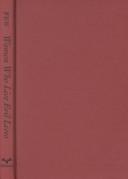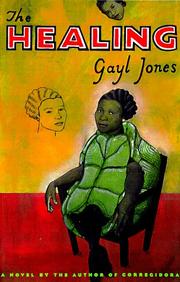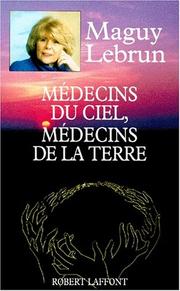| Listing 1 - 10 of 30 | << page >> |
Sort by
|

ISBN: 0292725493 9780292725492 Year: 2002 Publisher: Austin: University of Texas press,
Abstract | Keywords | Export | Availability | Bookmark
 Loading...
Loading...Choose an application
- Reference Manager
- EndNote
- RefWorks (Direct export to RefWorks)
Women Who Live Evil Lives documents the lives and practices of mixed-race, Black, Spanish, and Maya women sorcerers, spell-casters, magical healers, and midwives in the social relations of power in Santiago de Guatemala, the capital of colonial Central America. Men and women from all sectors of society consulted them to intervene in sexual and familial relations and disputes between neighbors and rival shop owners; to counter abusive colonial officials, employers, or husbands; and in cases of inexplicable illness. Applying historical, anthropological, and gender studies analysis, Martha Few argues that women's local practices of magic, curing, and religion revealed opportunities for women's cultural authority and power in colonial Guatemala. Few draws on archival research conducted in Guatemala, Mexico, and Spain to shed new light on women's critical public roles in Santiago, the cultural and social connections between the capital city and the countryside, and the gender dynamics of power in the ethnic and cultural contestation of Spanish colonial rule in daily life. --Publisher description
Women --- Women --- Women healers --- Women healers --- Wizards --- Wizards --- Inquisition

ISBN: 0807063142 Year: 1998 Publisher: Boston Beacon
Abstract | Keywords | Export | Availability | Bookmark
 Loading...
Loading...Choose an application
- Reference Manager
- EndNote
- RefWorks (Direct export to RefWorks)
African American women healers --- Man-woman relationships --- Women healers --- Fiction
Book
Year: 2018 Publisher: Éditions LC.
Abstract | Keywords | Export | Availability | Bookmark
 Loading...
Loading...Choose an application
- Reference Manager
- EndNote
- RefWorks (Direct export to RefWorks)
Book
ISBN: 1299311709 0226925390 9780226925394 9781299311701 9780226925387 0226925382 Year: 2013 Publisher: Chicago
Abstract | Keywords | Export | Availability | Bookmark
 Loading...
Loading...Choose an application
- Reference Manager
- EndNote
- RefWorks (Direct export to RefWorks)
Panaceia's Daughters provides the first book-length study of noblewomen's healing activities in early modern Europe. Drawing on rich archival sources, Alisha Rankin demonstrates that numerous German noblewomen were deeply involved in making medicines and recommending them to patients, and many gained widespread fame for their remedies. Turning a common historical argument on its head, Rankin maintains that noblewomen's pharmacy came to prominence not in spite of their gender but because of it. Rankin demonstrates the ways in which noblewomen's pharmacy was bound up in notions of charity, class, religion, and household roles, as well as in expanding networks of knowledge and early forms of scientific experimentation. The opening chapters place noblewomen's healing within the context of cultural exchange, experiential knowledge, and the widespread search for medicinal recipes in early modern Europe. Case studies of renowned healers Dorothea of Mansfeld and Anna of Saxony then demonstrate the value their pharmacy held in their respective roles as elderly widow and royal consort, while a study of the long-suffering Duchess Elisabeth of Rochlitz emphasizes the importance of experiential knowledge and medicinal remedies to the patient's experience of illness.
Women healers --- Pharmacy --- Medicine --- Women --- History
Book
ISBN: 9782378801649 2378801645 Year: 2020 Publisher: Paris: L'Iconoclaste,
Abstract | Keywords | Export | Availability | Bookmark
 Loading...
Loading...Choose an application
- Reference Manager
- EndNote
- RefWorks (Direct export to RefWorks)
Leurs noms circulent sous le manteau. Certaines utilisent des herbes, d'autres manipulent les corps et soulagent les âmes. Magnétiseuses, coupeuses de feu, énergéticiennes ou chamanes… Depuis la nuit des temps, les guérisseuses prennent soin des autres. Aujourd'hui on les consulte plus que jamais, mais leurs savoir-faire restent mystérieux. Ce livre plonge au cœur de leur histoire, éclaire les pratiques ancestrales et les emprunts à d'autres cultures.Il évoque, du Moyen Âge à nos jours, les gestes, incantations, formules magiques et objets que l'on se transmet de génération en génération. Il raconte ces temps cruels où elles furent traitées de sorcières, reléguées, discréditées, par méfiance ou mépris. Il dit aussi leur courage, dans l'ombre, pour perpétuer cet art de guérir, si précieux.Un livre passionnant sur l'histoire des femmes, un livre utile pour celles et ceux qui cherchent une autre manière de se soigner
Women healers --- Alternative treatment --- Therapeutics, Physiological --- Alternative medicine
Book
ISBN: 9780299343804 0299343804 Year: 2023 Publisher: Madison, Wisconsin The University of Wisconsin Press
Abstract | Keywords | Export | Availability | Bookmark
 Loading...
Loading...Choose an application
- Reference Manager
- EndNote
- RefWorks (Direct export to RefWorks)
"Since the beginning of the twenty-first century, Pentecostal churches have proliferated around the world. Expanding at astonishing rates in Africa, Latin America, and Asia, Pentecostalism has shifted Christianity’s global center of gravity from the West to the global South. In Spirit Wives and Church Mothers, Christy Schuetze explores how the growth of Pentecostal churches in central Mozambique occurred alongside a striking increase in so—called traditional religious practices such as spirit mediumship and spiritual healing. She follows women—who comprise the majority both of participants in Pentecostal churches and of initiates to new forms of mediumship—through two emergent, rival healing networks. Drawing on years of field research, Schuetze offers a richly drawn ethnographic analysis of these important religious transformations in the lives of female participants. Illustrating how economic and social context shapes the possibilities for—and forms of—women’s empowerment, Spirit Wives and Church Mothers intervenes in scholarly debates about the nature of agency and challenges universalist Western feminist assumptions about the form of women’s liberation"--
Women and religion --- Pentecostal women --- Women mediums --- Women healers
Book
ISBN: 0299343839 Year: 2023 Publisher: Madison : University of Wisconsin Press,
Abstract | Keywords | Export | Availability | Bookmark
 Loading...
Loading...Choose an application
- Reference Manager
- EndNote
- RefWorks (Direct export to RefWorks)
Women and religion --- Pentecostal women --- Women mediums --- Women healers

ISBN: 9782221052471 2221052471 Year: 1987 Publisher: Paris Robert Laffont
Abstract | Keywords | Export | Availability | Bookmark
 Loading...
Loading...Choose an application
- Reference Manager
- EndNote
- RefWorks (Direct export to RefWorks)
Women healers --- Magnetic healing --- Lebrun, Maguy --- médecins du ciel --- médium --- magnétisme --- groupes de prière --- guérison
Book
Year: 1957 Publisher: Boston,
Abstract | Keywords | Export | Availability | Bookmark
 Loading...
Loading...Choose an application
- Reference Manager
- EndNote
- RefWorks (Direct export to RefWorks)
Women healers --- Christian Science --- Guérisseuses --- Science chrétienne --- Biography --- Biographie --- Eddy, Mary Baker,
Book
ISBN: 0006485022 0002255162 Year: 1998 Publisher: Toronto : HarperFlamingo Canada,
Abstract | Keywords | Export | Availability | Bookmark
 Loading...
Loading...Choose an application
- Reference Manager
- EndNote
- RefWorks (Direct export to RefWorks)
Women healers --- Journalists --- Paranormal fiction. --- Guérisseuses --- Journalistes --- Surnaturel --- Fiction --- Fiction --- Romans --- Romans --- Romans
| Listing 1 - 10 of 30 | << page >> |
Sort by
|

 Search
Search Feedback
Feedback About UniCat
About UniCat  Help
Help News
News